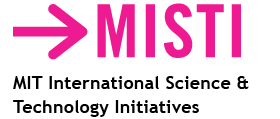Two awards from MIT-Chile Seed Fund
 MISTI’s newest program, MIT-Chile, launched fall 2011, connecting MIT students & faculty with companies and research opportunities in Chile. Find more information here.
MISTI’s newest program, MIT-Chile, launched fall 2011, connecting MIT students & faculty with companies and research opportunities in Chile. Find more information here.
A special Seed Fund for collaborations with PUC was opened, to which of course we applied. We are very glad to announce that two of our applications were accepted. These are the summaries of the projects presented:
Urban Public Transport Operations Control
Members: Nigel Wilson, Juan Carlos Muñoz
Summary: Increasing use of automatic data collection systems in transit systems is providing significant potential for improving service quality both in terms of service planning and operations management. However this potential has yet to be fully realized because prior research approaches have failed to fully appreciate the multiplicity of objectives and constraints facing controllers in the real world. This has resulted in overly simplistic model formulations which are not acceptable to operating organizations. In the proposed collaboration Professors Wilson and Munoz with graduate students at MIT and PUC will develop a general framework for addressing operations control problems in transit networks and demonstrate this framework in a range of settings including single bus and rail lines, with and without branches, and simple networks which allow for passenger interchanges. The objectives to be included within the framework relate to customer service quality, including both travel time and its reliability, and to the operator’s cost. Significant constraints to be included are the current locations of in-service and other available vehicles, the location and availability of crews with their working restrictions and the availability of infrastructure which are needed for various real-time interventions. The requested MISTI seed funds will be used to fund trips by both faculty and graduate students for working meetings among the team members and with transit agencies interested in applying the results of this collaboration in Boston, Santiago and London.
Implementing Bus Rapid Transit: Institutional Dimensions
Members: Christopher Zegras, Manuel Tironi
Summary: This project aims to critically assess the implementation procedures and implications of a particular form of large scale urban transportation intervention that has been increasingly pursued by developing and developed country urban decision makers: bus rapid transit (BRT). BRT aims to emulate more up-front-capital-intensive rail-based urban transportation systems on key performance characteristics, but with a relatively low-cost, rapid implementation, and a high degree of flexibility. While undoubtedly transforming mobility systems in many parts of the world, BRT is still a disruptive intervention. Our objective is to understand, from the planning policy and sociological perspectives, these large-scale engineering projects. Specifically, we aim to understand the consequences of the natural tensions that will arise between project proponents and groups from civil society, particularly neighborhood and environmental groups and incumbent transportation operators. To this aim, we will examine two recent, but quite different, BRT implementations in two Latin American capital cities: Transantiago, in Santiago de Chile; and Metrobus in Mexico City. These cases exemplify two very different modalities of BRT implementation and management. Their comparison, therefore, will bring new insights into the understanding and planning of BRT in Latin America and the global south at large.
¿Comments? ¿Opinions? ¿Similar News? Send them to us!
Tweet
